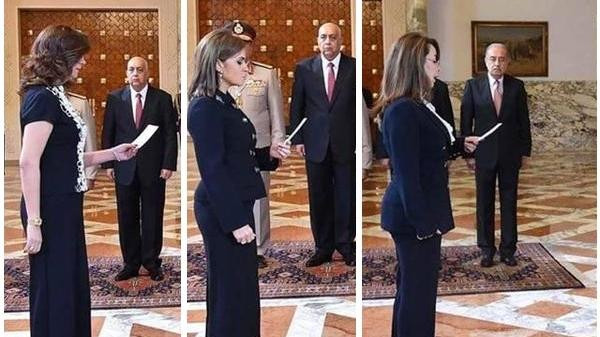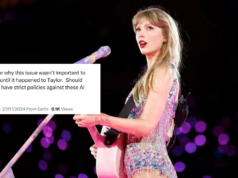Egypt just went through (yet another) political change as the new cabinet was sworn in by President Sisi on Saturday, just a week after the old cabinet resigned. Among the 33 new and returning ministers were 3 women: Ghada Waly as minister of social solidarity, Nabila Makram as minister of immigration and Egyptian expatriate affairs, and Sahar Nasr as minister of international cooperation.
While there are many topics that Egyptians could take to social media about, such as the problems of corruptions that led to the switch in ministers or the challenges faced by this cabinet to make an impact before the upcoming elections, they instead decided to focus on the three women members.
The importance of female representation in the government must be recognized, but the attention in this instance was misplaced. A hashtag followed the swearing in ceremony that with these uncovered, stylish women “Egypt is getting prettier.” With this mentality, the value of adding these women to high government posts is no longer in the impact that they will make in improving Egyptian society and lives, but rather on “how nice they are to look at.”
It may be confusing to people how pretty can be taken as anything other than a compliment, but it most certainly can. Certainly Minister Ghada Waly would prefer people to talk about her projects battling poverty rather than how “chic” she looks in a suit.
Minister Nabila Makram received extra attention, as some commented that her short-sleeved formal dress was “inappropriate.”
She had the best response, saying that she respects others’ opinions, but people shouldn’t judge her based on her appearance but rather on her work. She couldn’t be more spot on!
This is becoming an old worn-out story, that when women are in the public eye, they are doomed to receive more attention on their physical appearance than their male counterparts. It is exactly this mentality that lead to the #AskHerMore and #SmartGirlsAsk that was popular at the Emmys and focused on asking female celebrities more than the unfashionably overused question: What are you wearing?
Rather than asking themselves if these women are “hotter” than past female ministers, or if what they wore was “appropriate,” maybe people should be asking themselves why women are stuck to the same roles in the government, or why there are so few of them. Yes, women have been ministers before, but have we seen any in the male-dominated sectors, such as finance or defense? It is going to take more Nabila Makram’s to stand up against this outdated mentality that restricts a woman’s potential based on what she look like.



















